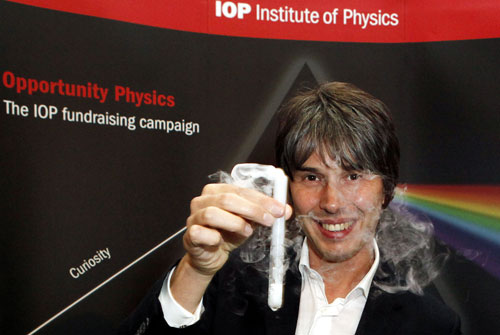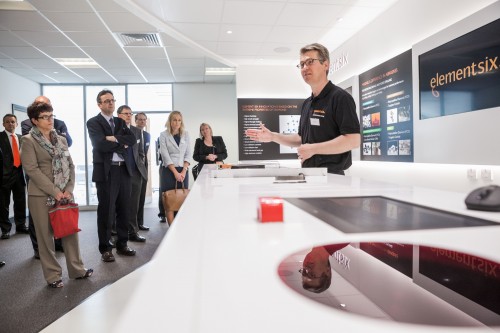Tag archives: careers
The cost of stereotypes
By Margaret Harris
When a 2012 study showed that scientists subconsciously favour male students over females when assessing their employability as early-career researchers, it generated plenty of debate – not least among women, who were, according to the study, just as likely to be biased as the men were.
Some of these discussions got rather overheated, but one cogent criticism of the study did emerge. Roughly, it was this: might the scientists’ preference for men over equally well-qualified women be a rational response to the fact that, because of various barriers, women in science often need to be better than their male counterparts in order to have an equal chance of success?
The question was an awkward one, since it implied that women in science could be caught in a vicious circle, with the negative effects of bias in the workplace making it “rational” to be biased in hiring (and, in turn, making such workplace bias more likely to persist). However, a new study appears to rule out this argument by finding similar patterns of hiring bias against women even when the “job” is an arithmetical task that, on average, women and men perform equally well.
View all posts by this author | View this author's profile
100 leading British scientists
By Margaret Harris
Earlier this week, the UK’s Science Council – an umbrella group for learned societies and professional bodies – published a list of the country’s 100 leading practising scientists. The rationale behind the list is interesting: according to the Council’s press release, it’s meant to “highlight a collective blind spot” in our attitudes towards scientists, which tend to “reference dead people or to regard only academics and researchers as scientists”.
I gave a quiet cheer when I read this. As I’ve noted before, fully 96% of the UK’s science PhD graduates make their careers in something other than academic research, yet their contributions often go unrecognized. There are many reasons for this, including commercial confidentiality and poor visibility (almost every academic scientist has their own webpage; most industry scientists don’t) along with the aforementioned “blind spot”. But whatever the reasons, a list honouring non-academic scientists seems long overdue.
Unfortunately, I’m not sure the Science Council’s list fits that description.
View all posts by this author | View this author's profile
Institute of Physics launches fundraising campaign

Manchester University physicist Brian Cox at the launch of the Institute of Physics’ fundraising campaign on 23 September 2013. (Courtesy: Richard Lewis)
By Matin Durrani
The Institute of Physics (IOP), which publishes Physics World, launched its first-ever fundraising campaign at a dinner at the Institute’s headquarters in London last night. The aim of the campaign, called Opportunity Physics, is to raise £10m over five years to let the Institute “significantly scale up” its work over the coming decades. The evening was hosted by Manchester University particle physicist Brian Cox, who is on the fundraising campaign’s board and is a familiar face as presenter of TV shows such as the BBC’s Wonders of the Solar System.
The Institute says it has identified a number of existing IOP projects that can be enhanced if further funding were available. Those projects are all centred on inspiring young people into physics, showing them what careers physics can lead to, helping physicists to flourish – whether they work in teaching, research or industry – and underlining how physics is central to a healthy, technology-led economy. With 52,000 members, the Institute already does a lot of good work, but it believes it can do even more with additional cash.
View all posts by this author | View this author's profile
New diamond centre cuts the ice
By Margaret Harris
The Harwell Science and Innovation Campus added another jewel to its crown yesterday when the industrial-diamonds firm Element Six officially opened its £20m new R&D facility on the Oxfordshire site, which is already home to organizations such as the Rutherford Appleton Laboratory and the UK’s flagship synchrotron, the Diamond Light Source.
I’d heard about Element Six’s plans thanks to this article, which appeared in the careers section of June’s Physics World. The author, Stephanie Liggins, is a physicist who joined Element Six after completing her PhD at the University of Warwick, and towards the end of the article she mentioned that she would soon be moving to the company’s new Global Innovation Centre – which she described as “the world’s largest synthetic-diamond research and development facility”.
View all posts by this author | View this author's profile
Do “real scientists” take research trips instead of holidays?
By Margaret Harris

Getting away from research for a while on a beach. (iStockphoto/David Franklin)
I’ve just started reading Letters to a Young Scientist, a new book by the eminent biologist Edward O Wilson. I picked it up as a possible subject for Physics World’s Between the Lines column of short book reviews because while Wilson is definitely not a physicist – he made his name studying the social systems of ant colonies – his book is written for scientists in all disciplines.
I haven’t finished it yet, but one bit of advice from the chapter “What it takes” grabbed my attention. After stating that academic scientists should expect to work 60-hour weeks, Wilson drops the real bombshell. “Real scientists do not take vacations,” he writes. “They take field trips or temporary research fellowships in other institutions.”
View all posts by this author | View this author's profile
